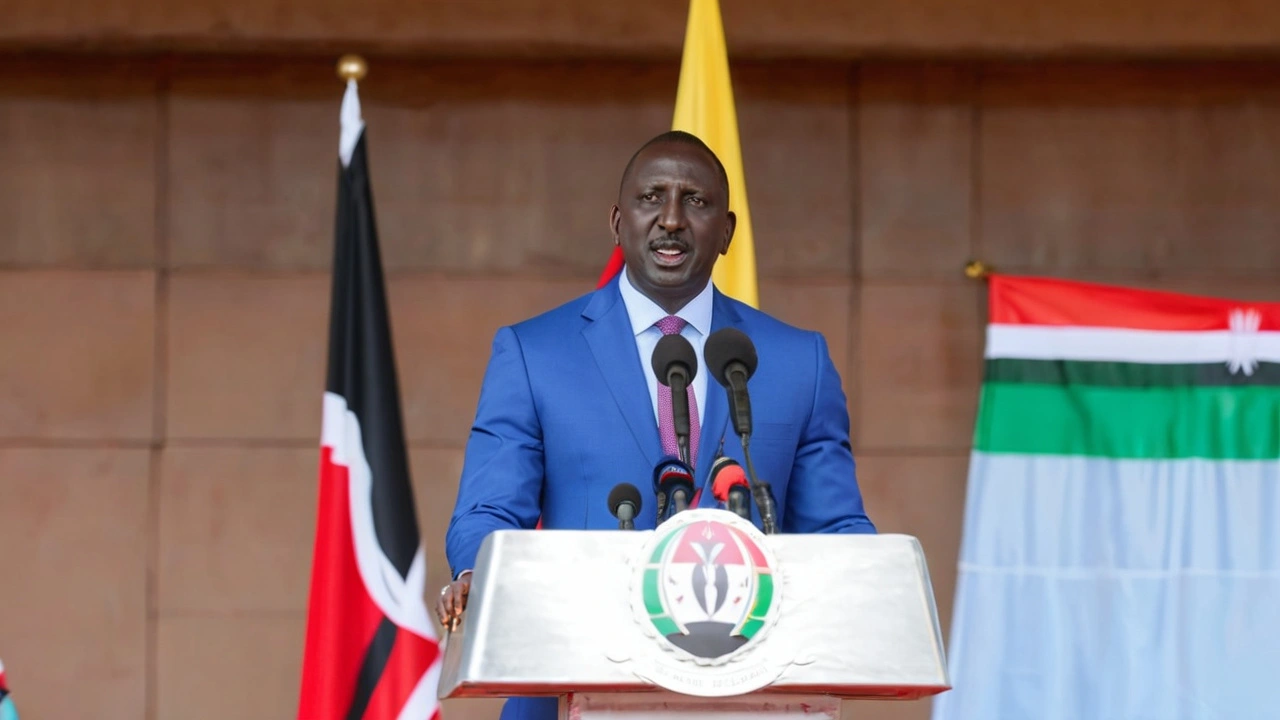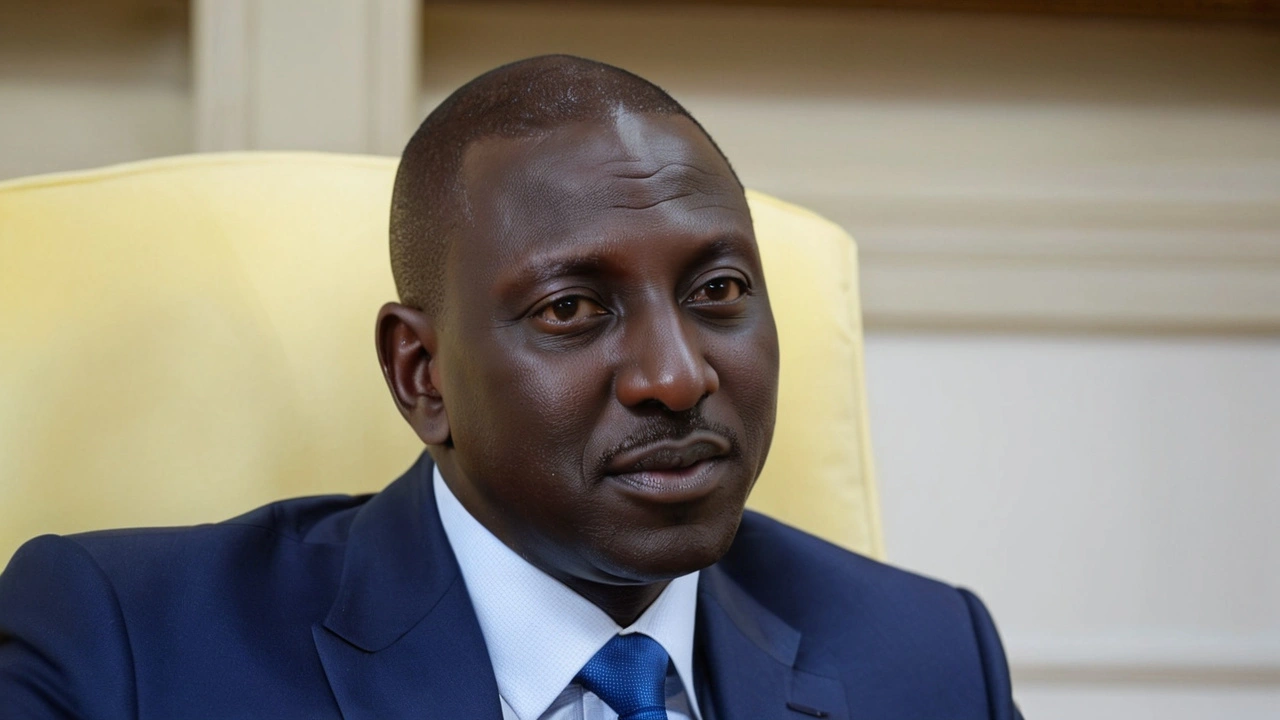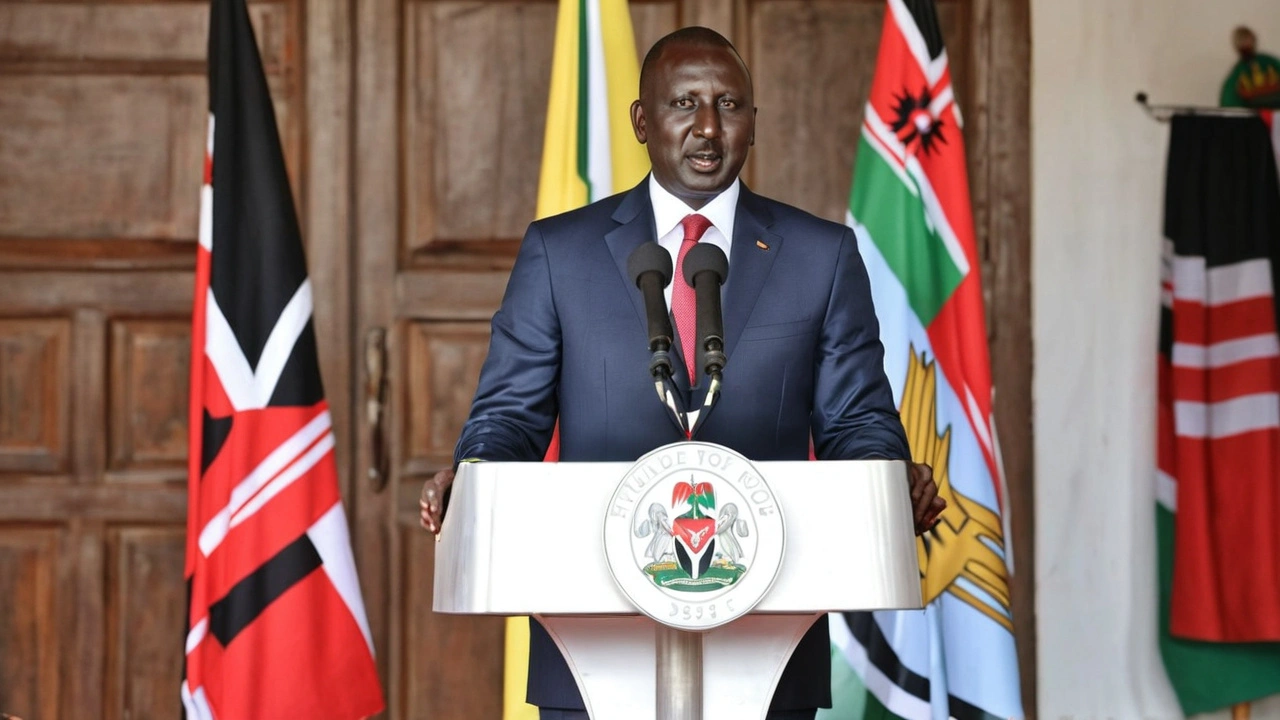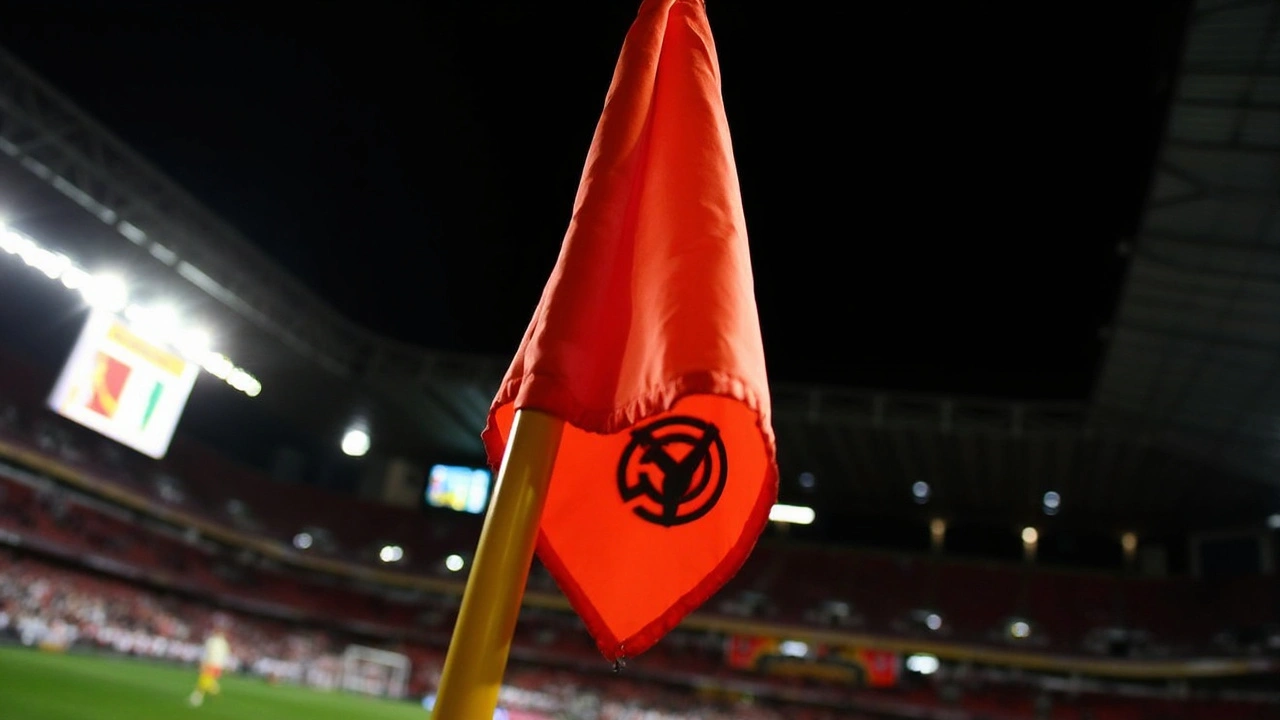Kenya's Escalating Protests: President Ruto's Stand Against Demonstrators
The political temperature in Kenya is reaching a boiling point as President William Ruto issues a fiery statement vowing to 'crush' anti-government protests that have been gaining momentum across the nation. The President made it clear that his administration would not stand idly by as what he described as 'tyranny of anonymous, faceless, formless, sponsored people' threatens to plunge the East African country into chaos.
The unrest has been fueled by demonstrators who are demanding President Ruto's resignation, accusing his regime of failing to deliver on its promises. The protests gained even more traction following Ruto's announcement of nominees to fill 11 Cabinet slots. Controversially, six of these nominees are individuals who had previously been fired, a decision that many protesters view as a step backward.
Komali Asiko, a political analyst, suggests that the reappointment of these six officials has been viewed by many as Ruto recycling old political elites, rather than bringing in fresh faces capable of genuine change. 'The people are demanding new leadership, individuals who are untarnished and capable of delivering on the promises made during the election campaign,' Asiko explains.
A Month of Violence and Unrest
The protests have not been without serious consequences. Over the past month, clashes between protesters and security forces have resulted in more than 50 deaths and significant property damage. The scenes from the streets of Nairobi and other major cities paint a stark picture of a country on the edge. Shops have been looted, cars set ablaze, and public buildings defaced.
In a particularly dramatic incident, anti-Finance Bill protesters stormed Parliament, vandalizing it and laying siege for hours. This event marked a significant escalation, highlighting the extent of public frustration and the willingness of protesters to take extreme measures to have their voices heard. The government has been left grappling with how to restore order without further inflaming tensions.
President Ruto, in a recent address, challenged those he claims are funding these protests to come forward and present their alternative visions for Kenya's future. 'If you believe you have better ideas, bring them to the table instead of hiding in the shadows and inciting violence,' he declared. His remarks indicate a government feeling the pressure but determined to maintain a grip on power.
Calls for Media Responsibility and Fair Reporting
President Ruto also directed strong words towards the media, urging responsible reporting and caution against feeding the flames of unrest. He emphasized the role of the press in shaping public perception and the importance of providing balanced coverage to avoid exacerbating the volatile situation.
The President's comments are timely, considering the powerful influence of media narratives in contemporary political conflicts. In a digital age where news spreads rapidly through social media channels, the potential for misinformation and sensationalism is higher than ever. Ruto's call for responsible journalism is a reminder of the media's crucial role in either stabilizing or destabilizing societies in times of crisis.

The Root Causes of Discontent
Digging deeper, the core issues driving these protests point to broader discontent with the current administration's performance. Many Kenyans are frustrated by what they perceive as unfulfilled promises regarding economic reform, job creation, and improved living standards. The rising cost of living, particularly in urban areas, has only added to the sense of urgency and disillusionment.
Economic expert James Mwangi highlights that the economic downturn has left many citizens struggling to make ends meet. 'Unemployment rates are skyrocketing, and the gap between the wealthy and the poor continues to widen,' Mwangi says. He adds that for many protesters, these demonstrations are not just about Ruto's cabinet appointments but about challenging systemic issues that have plagued Kenya for years.
Efforts to Restore Calm
In a bid to restore calm, the government has dispatched additional security forces to hotspots of unrest, a move met with mixed reactions. While some citizens welcome the increased police presence as a necessary measure to restore order, others see it as an attempt to intimidate and silence dissent.
Human rights organizations have also weighed in, urging both the government and protesters to engage in dialogue rather than violence. Amnesty International has called for an investigation into the deaths and injuries resulting from the clashes, stressing the importance of accountability and justice.
Furthermore, religious leaders and community elders have been stepping forward, mediating discussions between the government and protest leaders. These efforts aim to foster a peaceful resolution and address the underlying issues fueling the unrest.

The Road Ahead
Looking ahead, it remains to be seen how President Ruto's administration will navigate this turbulent period. The government's ability to address the protesters' demands while maintaining stability will be crucial in determining Kenya's future political landscape.
Political commentator Esther Njeri suggests that meaningful engagement between the government and civil society is essential. 'Dialogue is the key to de-escalating the situation. Both sides need to come to the table with open minds and a willingness to find common ground,' Njeri states. She adds that without genuine efforts to listen and act on the grievances being voiced, the cycle of protests and violence is likely to continue.
In the meantime, Kenyans watch closely as their country's political drama unfolds. The stakes are high, and the path to resolution will require careful balancing of authority, empathy, and a willingness to break from old patterns. In this critical moment, the actions and decisions of President Ruto and his administration will shape not only their immediate future but also the legacy they leave behind.
As the nation holds its breath, one thing is clear: Kenya stands at a crossroads, and the choices made today will reverberate for years to come.


